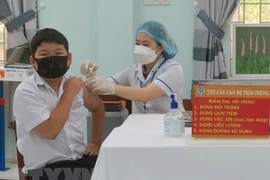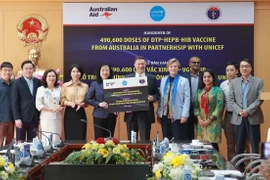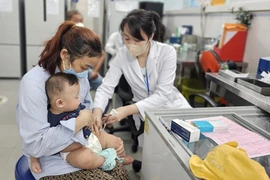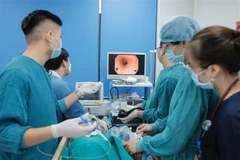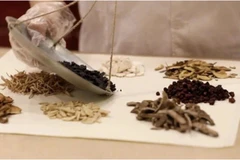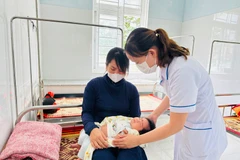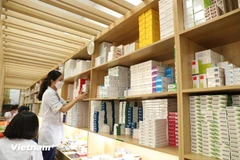Hanoi (VNA) – The National Institute of Hygiene andEpidemiology has signed contracts with domestic vaccine producers on the supply of ten types ofvaccines used for the national expanded programme on immunisation (EPI).
According to the institute, the vaccines will besoon allocated to localities this month. Specifically, there will be over 1.55million doses of BCG vaccine for Tuberculosis, 1 million doses of Hepatitis B vaccine,4.98 million doses of oral Polio vaccine (OPV), 1.9 million doses of Measlesvaccine; 1.7 million doses of Measles-Rubella vaccine; 1.4 million doses ofJapanese Encephalitis vaccine; 1.53 million doses of combined Diphtheria-Pertussis-Tetanus vaccine (DPT); 1.47 million doses of Tetanus vaccine and 1.37 milliondoses of Tetanus-Diphtheria (TD) vaccine.
The quantity of these nine vaccines is enoughto vaccinate children who did not get vaccinated in 2023 and those who arescheduled to be vaccinated in the first six months of 2024, according to arepresentative of the institute.
Particularly, nearly 550,000 doses of Rotavaccine which has been added to the EPI will be provided to children under 1-year-old from the second quarter of this year.
The EPI is a WHO programme that was launched in 1974 and was introduced in Vietnam in 1981. It provides vaccines for 12 preventable diseases, namelyTuberculosis, Hepatitis B, Diphtheria, Pertussis, Tetanus, Polio, Hib, Measles,Rubella, Japanese Encephalitis, Cholera (in high-risk areas), and Typhoid (inhigh-risk areas)./.


